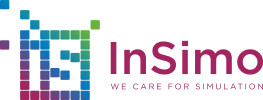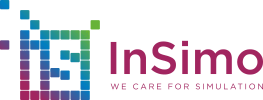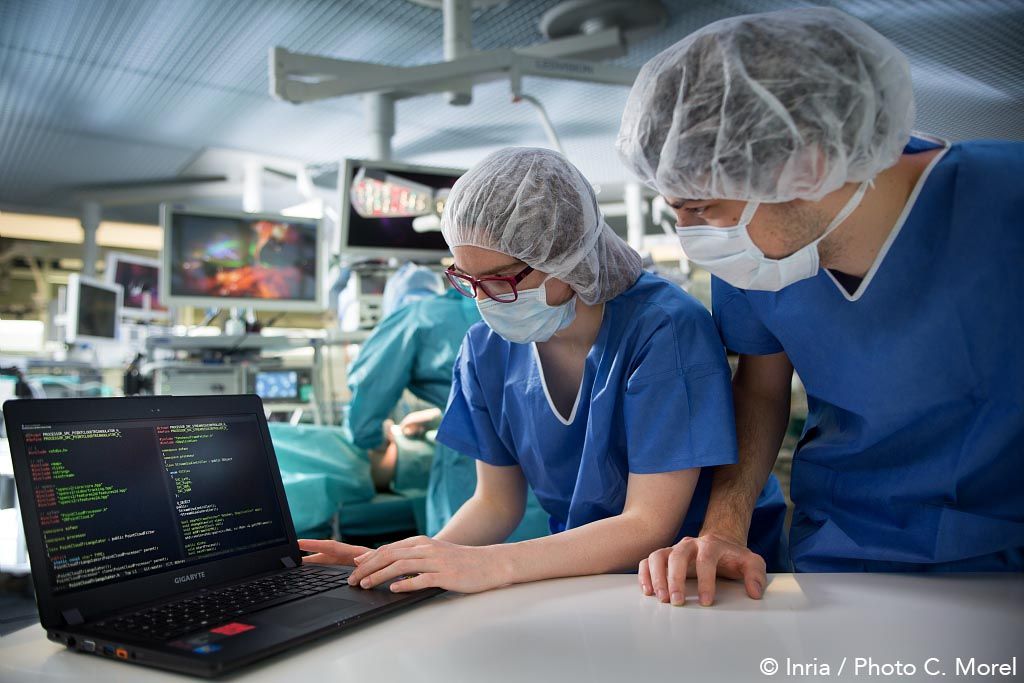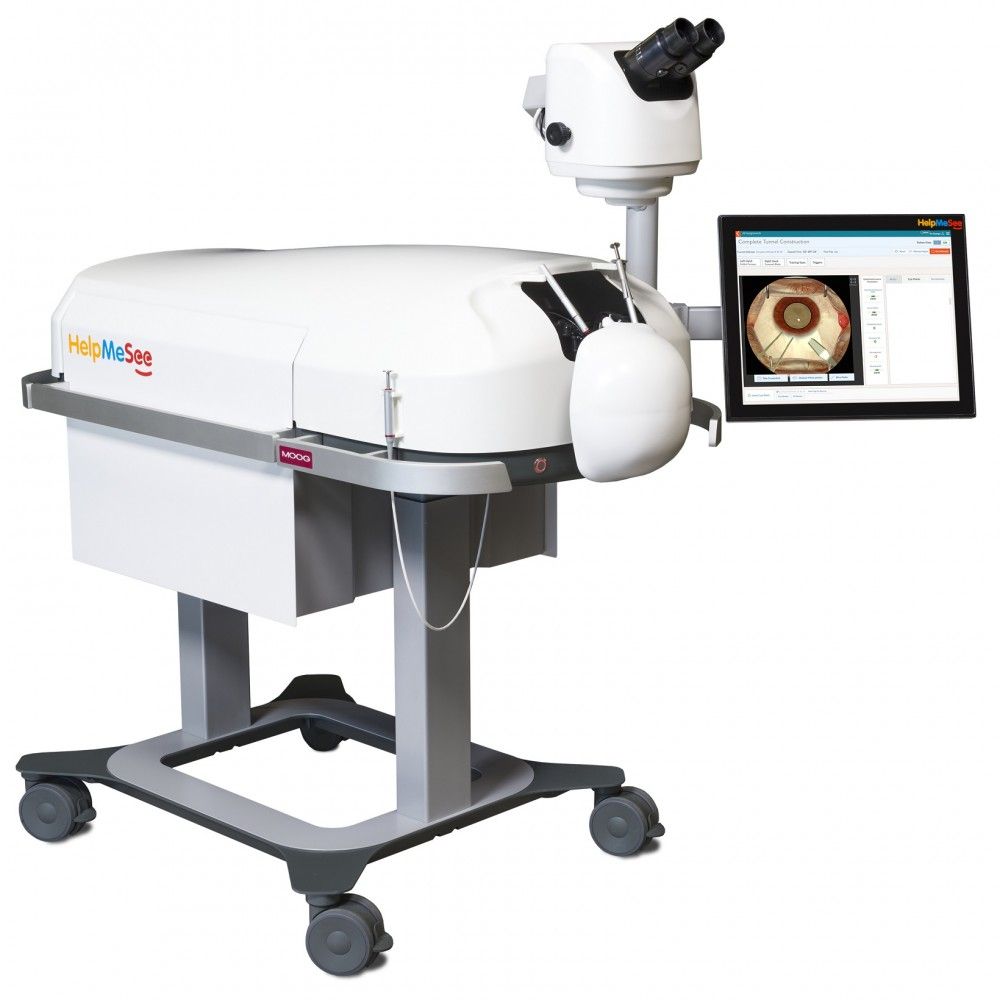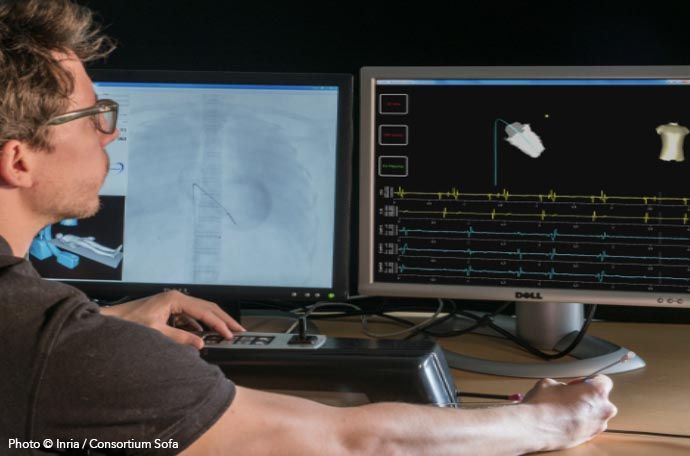?️ INTERVIEW ?️
InSimo’s contribution to SOFA’s open source code
Discover the interview of the main players
__
By Jeremy Ott / May 7th 2021
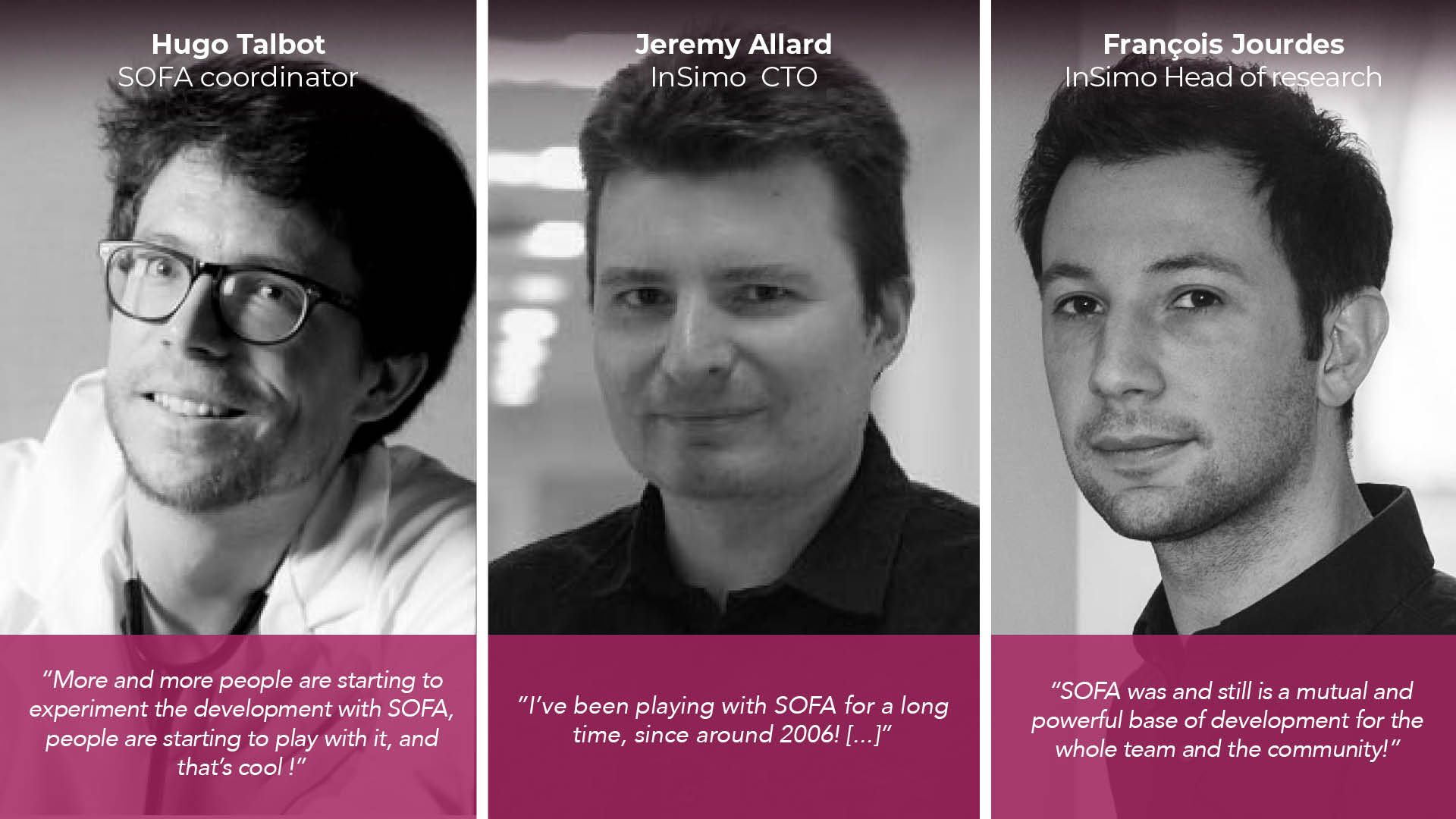
Photo Hugo Talbot : © Inria / É. Garault
InSimo, the company specialised in the development of software for medical and surgical training, contributes to the SOFA open source code.
Discover the cross interview of Hugo Talbot – SOFA Coordinator at Inria Foundation, François Jourdes – Head of Research at InSimo & Jérémie Allard – CTO & Co-founder of InSimo, main stakeholders of this new contribution from the startup to the consortium.
 François Jourdes: “Our goal: to improve the overall performance of SOFA to offer more speed and fluidity to the community in the execution of their simulation”.
François Jourdes: “Our goal: to improve the overall performance of SOFA to offer more speed and fluidity to the community in the execution of their simulation”.
Our contribution in a nutshell
“An acceleration of the execution speed of simulated scenes up to 10x higher on direct solvers and up to 40x higher on some scenarios with the integration of multi-threaded support and matrix assembly optimization.
This new contribution illustrates the strong relationship between InSimo and the academic world through the SOFA consortium. Both user and contributor, the startup has chosen to transfer part of its private code into the public Open Source repository of the platform.
Through this technology transfer based on multithreading and matrix assembly, InSimo allows the whole community to benefit from the fundamental elements of its technology now integrated into the heart of the SOFA engine. The nature of the contribution is based on a simple principle: to offer simulations that run fast, to allow real-time interactions with complex models. The result is a guarantee of high-performance, fluid simulations with increased interactivity, as close as possible to reality thanks to fast calculations that guarantee almost immediate responses in the execution of the simulations.
Let’s discover our 3 interviewees :
Hugo Talbot
He is the coordinator of the SOFA consortium, which is responsible for the animation and development of the community with academic and private members, the maintenance of SOFA, the production of stable releases and the global harmonization of developments.
His goal: “Ensure a stable open-source code base to allow projects to succeed and the community to grow.”
Jérémie Allard
Committed since 2006, Jérémie has been present since the beginning of the SOFA adventure, first as a postdoctoral fellow and then as a researcher.
After a short break when InSimo was created, Jeremie switched from being a contributor to being a SOFA user, this time as CTO & co-founder of InSimo. Nevertheless, his involvement in the community remains very present, aware of the challenges and difficulties of this type of project.
For him: “SOFA users are mainly developers and often need to modify the open source code itself, which makes it difficult to introduce major changes. However, it remains essential to inject industrial code into the open source core when it allows the whole community to benefit from high value-added features.”
François Jourdes
He started working on SOFA in 2008 as a young graduate engineer and was also part of one of the Inria research teams at the origin of SOFA’s development.
François: “The SOFA code made it possible to pull the biomechanical simulation research efforts of the Inria teams in Lille, where Jérémie was a member, and in Sophia Antipolis and Grenoble, where I worked. SOFA was and remains today a mutual and powerful basis for development for all the teams and the community.”
After more than two and a half years of investment in the subject, François joined InSimo in 2013, seduced by an opportunity to collaborate on the HelpMeSee project for the development of a cataract surgery simulator with the ambition of eradicating blindness related to this disease in the world. Today, he is in charge of research at the startup, and is also strongly involved in the consortium.
To start this interview, let’s quickly go back to SOFA and the major interests of joining the community. Hugo, could you tell us more about it?
Hugo : “SOFA is an Open Source platform, so the code is completely accessible. Open code means community: today, international development teams, engineers and researchers gather around this platform, use it and make it evolve every day. With this stable and robust software core, SOFA aims to facilitate and feed the academic and economic activities of the community. This is the current dynamic of the consortium.
Joining the community allows to find multiple collaborations with international laboratories, from Europe to the United States and Japan. It also allows to set up partnerships with private actors through different events and news throughout the year. Finally, it can be the way to find profiles in simulation or to be hired by the company of your dreams. That’s the whole point of sharing a common technological base!”
And how does InSimo fit into SOFA?
Hugo : “It is clear that InSimo has a special place for the consortium for several reasons: significant growth around SOFA, an aura of being an accomplished startup that has used SOFA as a foundation for development, but also a shared history since InSimo originated, like SOFA, from Inria research teams.”
A significant event in the InSimo / SOFA relationship?
Hugo : “I remember in 2012, the set up of InSimo and their flagship project: HelpMeSee. This event was a milestone and exciting for the entire SOFA community. A project with an international dimension generating worldwide visibility based on an open source tool dedicated to simulation to train people all over the world, there was no better ambassador to illustrate the strength of SOFA.”
“Today, InSimo still has a special place in the community, especially because of the high level of technical mastery of SOFA within its teams. This remains quite unique in the community. InSimo’s team is among the largest and the most expert on SOFA, which makes it a great showcase to show what quality of finished product our open source solution can lead to”
Now let’s get into the heart of the interview by taking a closer look at InSimo’s latest contribution to Open Source SOFA and its benefits to the community…
François: “To begin, I would say that the main interest of this contribution is to show and share improvements that we have implemented in the particular context of simulations that have to run fast while maintaining a high level of accuracy and that use finite element methods to do modeling and deformation.”
“It is also important to note that the potential applications of this contribution are not only medical related. Thanks to its latest contribution, InSimo brings a standard and easily reproducible development base whose primary objective is to be able to run simulation scenes as quickly as possible, whatever the domain concerned.”
The interest for the community is to bring elements of answers to a research theme that exists in the academic world: how to run simulations as fast as possible?
“Through our contribution we share an industrial solution that will allow academics to have a reference on which they can compare the performance of their algorithms”
“Finally, our contribution also reflects our know-how by exposing our way of “digesting” and working with code, whether in the integration of external libraries or the integration of SOFA contributions to our private code.”
Jérémie:“There are contributions that allow to model new things, new models but that are very specific especially for medical or robotics, but here what we tried to do is a contribution that would globally benefit all SOFA users without them needing to change their modeling strategy in their simulations.”
“Despite this, our contribution does not apply to all simulations, we focused on simulations that have an FEM resolution with a direct Solver. This part of the code is relatively underlying and cross-cutting to many simulations, and joins InSimo’s desire to potentially bring value to as many people in the SOFA community as possible by improving the overall performance of the code rather than by developing a new algorithm.”
Example of simulation with SOFA, by Jérémie Allard
François: “Indeed, to complement Jeremie, I would say that the contribution proposed by InSimo is not a new deformation algorithm or a new way of solving interactions between objects. We wanted to propose an improvement that would benefit a researcher working on biomechanical modeling as well as on contact detection and resolution. Without too much effort the community will be able to get great performance gains.”
“On the InSimo side, this open source version of our technology will make it easier for us to develop research partnerships. We will be able to use it as a medium to illustrate and faithfully reproduce the fundamental technical issues that InSimo wants to advance jointly with the academic world.”
Last question, how was this contribution received by the SOFA consortium?
“This is a big contribution and a sign of good health for the consortium. Receiving contributions is clearly part of the expectations of the consortium and particularly of Inria. We receive contributions with open arms because they allow us to show that our community is evolving and growing in skills.”
Hugo: “Multithreading and efficient matrix assembly are key points that increase the performance and thus the interactivity of simulations. As SOFA is often sought after as a development base for the interactivity and speed brought into applications, this makes InSimo’s contribution all the more important and impactful. Moreover, by its transversality, it will benefit the whole community. It has already been received very positively by the entire consortium.”
“For collaborations with academies, this collaboration will allow us to compare and exchange on common simulation scenes, whatever the simulation, whatever the use of SOFA, the overall performance will be affected by an increased performance.”
? JOIN THE COMMUNITY ?
